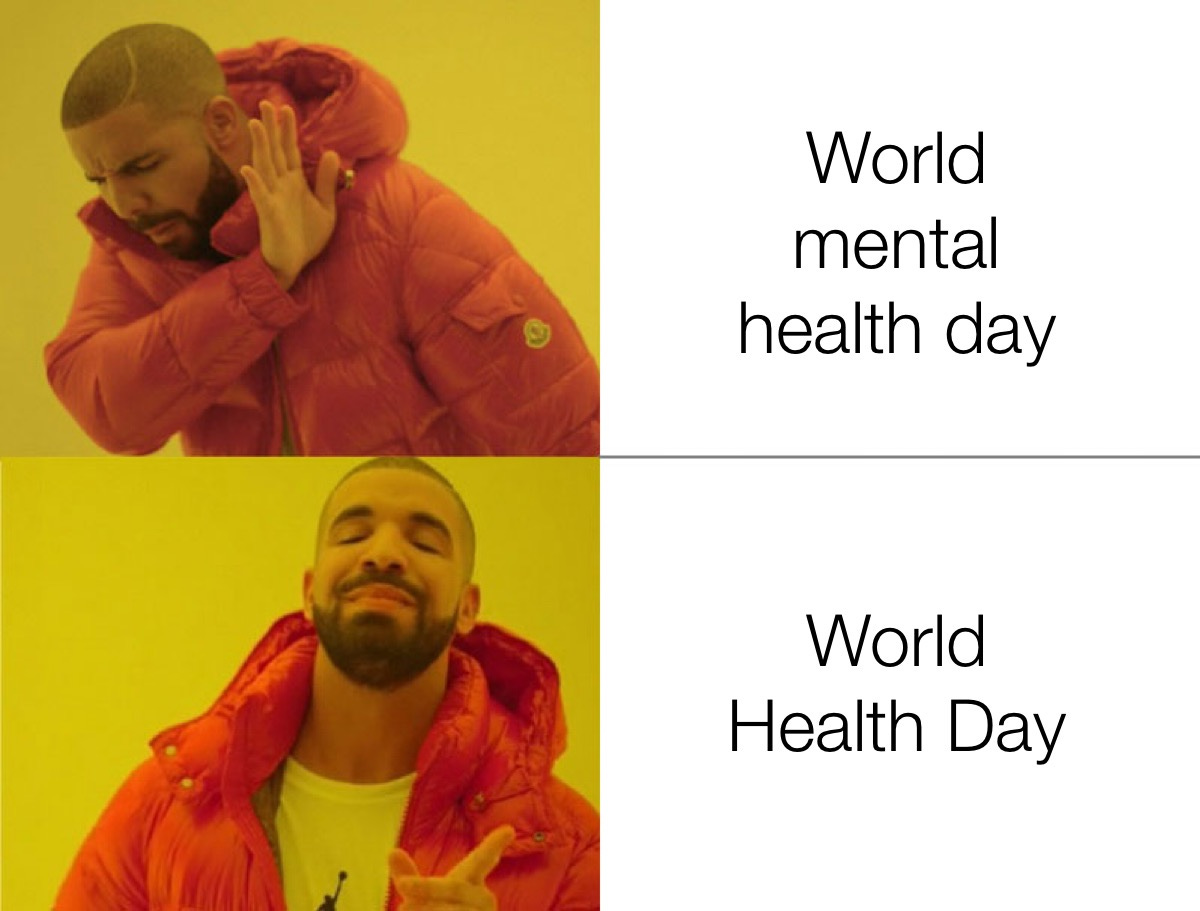World Mental Health Day
A Dissent.
Do you have any idea what mental health is? I wish I did. You have permission from me to be confused. I’m Owen Scott Muir, and I’m a Mental Health Professional. I should probably have an idea. I refer to the Frontier Psychiatrists Substack as a Health-themed newsletter for all the reasons I’m going to enumerate. Subscribe.
We've been told mental health is important. It is. I don't know what the word it means in this context.
Or I would like to know if we have a shared understanding of the word we would accept be acceptable in any other conversation. If we ask if your car is OK, we have a general sense that the car would need to have:
structural integrity,
four tires,
the ability to move on those rolling tires from one place to another,
not breaking down constantly, and
not crashing into a wall.
Working tires, wheels, and the ability to move someone from one place to another are all accepted concepts regarding the utility of anyone's car. Cars need to go… safely.
Health, as a more broad term, is better understood. Are you actively dying? Are you in pain? Are you able to breathe? Is your heart beating? Can you get out of bed, comb your hair, brush your teeth, go to work, and hug your children? Activities of daily living have been defined.
I fear we made a mistake by putting the word mental in front of the health. It's confused us. Because it suggests there's something different about mental health and health. Health, the state of well-being in which one can do the things they need to do in the day without significant impairment, is a meaningful way to assess whether someone's health is good enough. Being functional, you don't need the word mental in front of it.
I would encourage us to consider Health on this World Mental Health Day. I would encourage us to think about the distinction between disability by any standard1 and what would be the ability to do life things by any measure2. The brain is part of the body. The health of the brain and its relationship with the body matters. Similarly, the health of your body and the health of the bodies and brains of the people you interact with matter.
I urge researchers and clinicians to look at ability and disability broadly.
Are you able to focus?
Are the things on which you can focus the things you'd like to focus on?
Can you have positive, loving relationships in your life3?
Can you do meaningful work4?
Can you imagine feeling satisfied?
Can you work towards feeling satisfied, perhaps in an accessible educational setting5?
The further we get from the confusing specifier of mental before the word Health, the better. It is about addressing disability. We happen to have laws about that, at least in the US.
Healthy people are mentally healthy people. Being mentally healthy doesn't do much to add relevant context, and I fear that it subtracts some from our ability to understand each other.
Thanks for joining me on this World Health Day, which is maybe what we call it in the future.
Drake, R. E., Bond, G. R., Thornicroft, G., Knapp, M., & Goldman, H. H. (2012). Mental health disability: an international perspective. Journal of Disability Policy Studies, 23(2), 110-120.
Sanderson, K., & Andrews, G. (2002). Prevalence and severity of mental health-related disability and relationship to diagnosis. Psychiatric services, 53(1), 80-86.
Tough, H., Siegrist, J., & Fekete, C. (2017). Social relationships, mental health and wellbeing in physical disability: a systematic review. BMC public health, 17(1), 1-18.
Gold, L. H., & Shuman, D. W. (2009). Evaluating mental health disability in the workplace. New York, NY: Springer.
McManus, D., Dryer, R., & Henning, M. (2017). Barriers to learning online experienced by students with a mental health disability. Distance Education, 38(3), 336-352.



I agree with you and agree with your dissent.